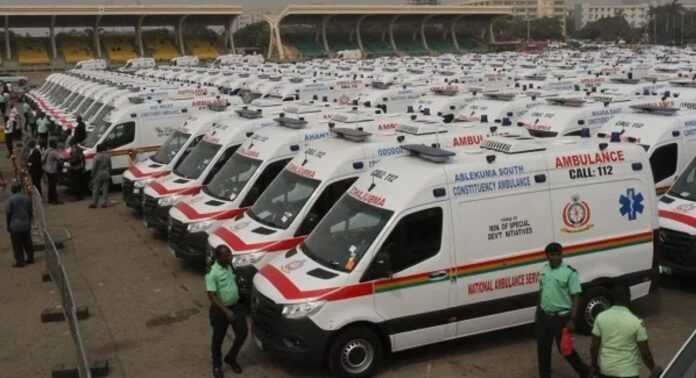Ghana’s proposed 24-hour economy initiative holds significant potential for economic growth, but its immediate implementation may face challenges due to existing foundational gaps, according to Professor Peter Quartey, Director of the Institute of Statistical, Social, and Economic Research (ISSER).

At the launch of the State of the Ghanaian Economy Report (SGER) 2023 in Accra on Tuesday, October 29, Prof. Quartey emphasized that a successful 24-hour economy requires reliable infrastructure, particularly stable energy and security systems, which Ghana currently lacks.
He argued that for factories to operate around the clock, there must be sufficient market demand to justify increased production.
“The 24-hour economy is a good concept, but we may not achieve much with it. If factories were to produce 24 hours or increase demand by 50% or 100%, is there enough demand for those products?” he questioned, indicating that without adequate demand, Ghana could struggle to realize the benefits of a 24-hour economy.
Prof. Quartey noted that while the idea is promising, it should be viewed as a medium- to long-term strategy rather than a quick fix. “This is a medium- to long-term policy. I don’t believe we can achieve much with this 24-hour concept right away. It’s a good idea, but we need to establish the necessary structures,” he stated.
He criticized the short-term focus often seen in political manifestos, arguing that it undermines the need for cohesive, long-term development plans. He observed that political leaders frequently propose policies in a piecemeal, experimental fashion, motivated by short-term objectives rather than sustainable national growth.
“We often rely on manifestos that prioritize short-term strategies. We lack a comprehensive development plan, leading to constant changes in an experimental manner,” he explained. “What we need is a long-term development plan that can integrate all these initiatives effectively.”
The 24-hour economy proposal, part of the opposition NDC’s campaign for the 2024 elections, aims to expand access to jobs, services, and business activities beyond traditional hours.
This model would enable people to access services around the clock, enhance employment flexibility, and potentially reduce unemployment by accommodating workers during non-traditional hours.
























































![[FREE FREE MONEY] Predict and Win a Guaranteed GH¢200 From Us EVERY WEEK](https://wordpress.ghanatalksradio.com/wp-content/uploads/2022/02/Predict-and-Win-Final-09-03-2021-218x150.jpg)
![[Predict & Win – 8th/Oct.] WIN A Guaranteed ¢200 From Us This Week](https://wordpress.ghanatalksradio.com/wp-content/uploads/2021/10/maxresdefault-16-218x150.jpg)
![[Predict & Win – 2nd] WIN A Guaranteed ¢200 From Us This Week](https://wordpress.ghanatalksradio.com/wp-content/uploads/2021/09/maxresdefault-50-218x150.jpg)
![[Predict & Win – 25th] WIN A Guaranteed ¢200 From Us This Week](https://wordpress.ghanatalksradio.com/wp-content/uploads/2021/09/maxresdefault-36-218x150.jpg)
![[Predict & Win – 18th] WIN A Guaranteed ¢200 From Us This Week](https://wordpress.ghanatalksradio.com/wp-content/uploads/2021/09/maxresdefault-23-218x150.jpg)







![[National cathedral] See full list of churches that have contributed since 2018](https://wordpress.ghanatalksradio.com/wp-content/uploads/2020/09/Ghana-National-Cathedral-GhanaTalksRadio-100x70.jpg)
![[Dumsor] Minority Caucus in Parliament claims current power outages purely due to mismanagement](https://wordpress.ghanatalksradio.com/wp-content/uploads/2023/12/minority-100x70.jpg)
![[NDC primaries] Loss of seventeen NDC MPs unfortunate](https://wordpress.ghanatalksradio.com/wp-content/uploads/2022/12/Committee-needed-to-assess-impact-of-loans-–-Kyei-Mensah-Bonsu-1-100x70.jpeg)

